LINCOMYCIN - INJECTION
PHONETIC PRONUNCIATION: (LIN-koe-MYE-sin)
COMMON BRAND NAME(S): Lincocin
GENERIC NAME(S): lincomycin HCl
Uses
USES: This medication is used to treat a wide variety of bacterial infections. It works by stopping the growth of bacteria. This antibiotic treats only bacterial infections. It will not work for viral infections (such as common cold, flu). Using any antibiotic when it is not needed can cause it to not work for future infections.
How to use LINCOMYCIN - INJECTION
HOW TO USE: This medication is given by injection into a vein or muscle as directed by your doctor, usually 1 to 3 times a day. The dosage is based on your medical condition and response to treatment. In children, the dosage is also based on weight. If you are using this medication at home, learn all preparation and usage instructions from your health care professional. Before using, check this product visually for particles or discoloration. If either is present, do not use the liquid. Learn how to store and discard medical supplies safely. For the best effect, use this antibiotic at evenly spaced times. To help you remember, use this medication at the same time(s) every day. Continue to use this medication until the full prescribed amount is finished, even if symptoms disappear after a few days. Stopping the medication too early may allow bacteria to continue to grow, which may result in a return of the infection. Tell your doctor if your condition lasts or gets worse.
Side Effects
Precautions
Interactions
Overdose
Images
Reviews
Faq for LINCOMYCIN - INJECTION
- Lincomycin injection is an antibiotic medication used to treat severe bacterial infections such as respiratory tract infections, skin and soft tissue infections, and bone infections.
- Lincomycin works by inhibiting the growth and spread of bacteria. It does this by interfering with their ability to produce certain proteins necessary for their survival.
- Lincomycin injection is usually given by a healthcare professional. It is injected into a muscle (intramuscularly) or into a vein (intravenously) as directed by your doctor. The dosage and duration of treatment will depend on the specific infection being treated.
- Common side effects of Lincomycin injection may include diarrhea, nausea, vomiting, abdominal pain, and skin rash. Serious side effects are rare, but can include severe allergic reactions, liver problems, and colitis (inflammation of the colon).
- Yes, it is important to inform your doctor if you have any allergies, liver disease, or kidney disease before starting Lincomycin injection. It is also important to let your doctor know about any other medications you are taking, as they may interact with Lincomycin.
- It is recommended to consult with a healthcare provider before using Lincomycin injection during pregnancy or while breastfeeding. It is crucial to weigh the potential risks and benefits before starting any medication.
- If you miss a dose, contact your healthcare provider for instructions. It is important not to double the dose to make up for a missed one.
- Yes, Lincomycin injection can be used in children if prescribed by a healthcare professional. The dosage will be adjusted based on the child's weight and the severity of the infection.
- The response to Lincomycin injection can vary depending on the individual and the specific infection being treated. It is important to complete the full course of treatment as prescribed by your doctor, even if symptoms improve before the completion of treatment.
Warning
WARNING: This medication may rarely cause a severe intestinal condition (Clostridium difficile-associated diarrhea) due to a type of resistant bacteria. This condition may occur during treatment or weeks to months after treatment has stopped. Tell your doctor right away if you develop: diarrhea that doesn't stop, abdominal or stomach pain/cramping, blood/mucus in your stool. Do not use anti-diarrhea products or opioid medications if you have any of these symptoms because these products may make them worse.
Disclaimer
IMPORTANT: HOW TO USE THIS INFORMATION: This is a summary and does NOT have all possible information about this product. This information does not assure that this product is safe, effective, or appropriate for you. This information is not individual medical advice and does not substitute for the advice of your health care professional. Always ask your health care professional for complete information about this product and your specific health needs.
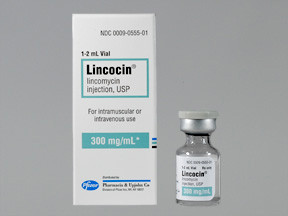
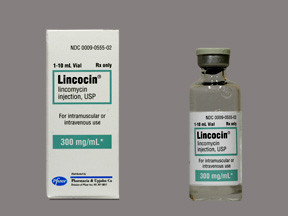
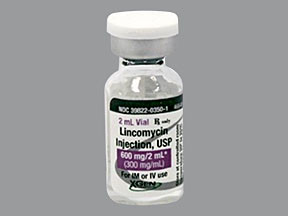
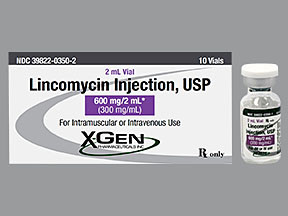
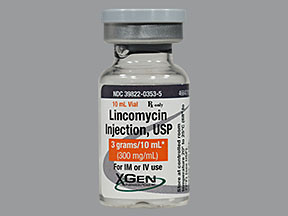
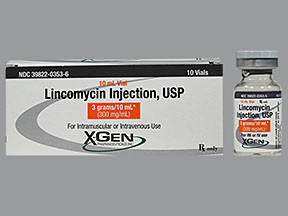
No Reviews Yet